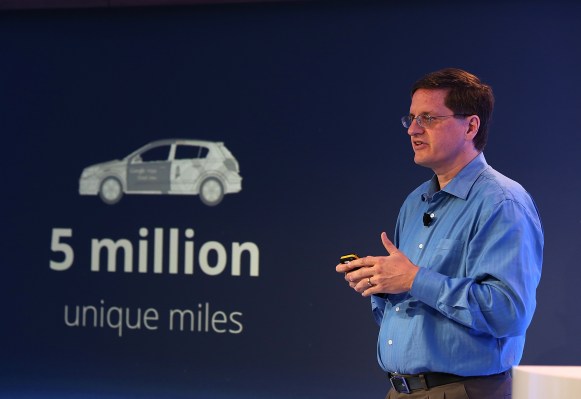Brian McClendon, a notable engineering executive at startups and large tech companies, including Google and Uber, has announced his candidacy to run for the open seat of secretary of state of Kansas. He will compete in the Democratic primary scheduled for August 7th.
McClendon has been a lifelong engineer, growing up in the state and receiving his undergraduate degree in electrical engineering at the University of Kansas. He spent almost a decade at Silicon Graphics before becoming a co-founder of Keyhole, a visual mapping startup which would eventually sell to Google in 2004 and become what is today known as Google Earth (Google Earth famously centered its visual globe on McClendon’s childhood home of Meadowbrook Apartments). He was most recently VP of Maps and Business Platform at Uber.
While he has spent much of the past two decades in the Bay Area, he returned home to Kansas last year following the election of President Donald Trump. “Technology can bring you home,” he described to me. “We reached a point at the end of 2016 that became problematic on the political side and that was the impetus to give up my management career in the Valley and return here.”
McClendon has been a research professor at the University of Kansas for the past year, but as he was talking with voters, he realized there was a large gap between the duties of secretary of state and the actions that the current and former holders of the position have taken.
Software is critical to many of the systems operated by the secretary, but Kansas’ current offerings were lackluster, particularly in voter registration. “When I started to work on it and built some tools in the area, I was quickly able to build something better than the current state offering,“ McClendon said. He believes there is an opportunity to take his previous experience in Silicon Valley and improve government services across the board with better software.
It’s not just usability that is a concern, but also the security of that data. McClendon explained to me that voter rolls are one of the few paths states have to engage with big data, but there are a lot of challenges in managing highly sensitive and personal information.
He gave the example of Crosscheck, which is a Kansas-sponsored program to check voter rolls for duplicate voters by compiling data from 26 other states. Security issues with the upload and download of data has allowed at least some of that data to be leaked, and the algorithm for de-duplication has had significantly high rates of false positives. McClendon described the implementation as “sub-par.”
The role of secretary of state in Kansas includes managing elections, handling business filings, including incorporations and licensing, and releasing data and reports about Kansas state government, including the state’s Kansas Register.
The current secretary of state, Kris Kobach, is running for governor. Kobach is among the most vocal politicians on voter fraud, and he was the “de facto leader” of President Trump’s Advisory Commission on Election Integrity, which looked into claims that up to 5 million people voted illegally in the 2016 presidential election. That commission was dissolved a few weeks ago.
So far, five candidates have announced their candidacies for the role, including Lucy Steyer, who will compete with McClendon in the Democratic primary, as well as Kelly Arnold, Keith Esau and Scott Schwab, who are running as Republicans according to Ballotpedia. This is McClendon’s first run for public office.
